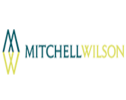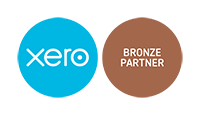Year End Tax Planning Checklist
End of Financial Year is upon us once again! It's time to make sure your tax affairs are in order and any important decisions are made and acted upon.
We've prepared this tax planning checklist that will have you breathing easy about this hectic time of year.
Business Owners
1. Superannuation Guarantee Contributions
As an employer you are required to make the super guarantee contribution payment of 9.5% of employee's gross wage by 28 July.
Where you have SGC payments for employees for the June quarter, if you can pay these before June 30 you will be eligible for a current year tax deduction.
If you do not pay minimum super contributions for quarter 4 by 28 July, you must pay the super guarantee charge (SGC). The SGC is not tax deductible.
2. Superannuation Contributions
Ensure you do not exceed the concessional and non-concessional contribution caps per year.
The government recently announced changes that, if passed by parliament, will provide an unindexed concessional contributions cap of $35,000 for:
- from 1 July 2013 - individuals who are 60 years old or over
- from 1 July 2014 - individuals who are 50 years old or over
3. Debtor Management
Review accounts receivable ledger and consider any bad debts.
Write them off before June 30 and take the tax deduction. They should be written off in your accounts receivable ledger and recovery action should have ceased.
4. Stock-take
Consider value of stock during year end stock-take.
If you have any stock that is old, damaged or obsolete you can scrap it and write it off before June 30 to receive an immediate tax deduction.
You may have stock that you don't want to scrap but may be worth less than its cost price. You can value stock at the lower of cost, replacement or net market value. This will result in a tax deduction.
5. Fixed Assets Register
Review your asset register and write off any plant or equipment that has been scrapped prior to 30 June. This will result in a tax deduction equal to the closing written down value prior to scrapping.
6. Defer Invoicing
Consider delaying invoicing for sale of goods or services rendered during June until after 30 June to reduce your assessable income.
7. Purchases Brought Forward
If you are planning on purchasing any consumables or assets in the near future, consider making the purchases prior to 30 June to receive tax benefits.
Individual – Investors
1. Superannuation Pension Payments
Account Based Pension (ABP): Ensure you have met the minimum pension requirement before 30 June
Transition to Retirement Income Stream (TRIS): Ensure you have met the minimum pension requirement and you do not exceed maximum pension limit of 10% before 30 June
2. Sale of Investments
Consider delaying the sale of any CGT assets, resulting in a gain, until after 30 June, unless you have losses that may be lost in future years because of the company or trust loss rules
Exercise caution if crystallising capital losses to offset against capital gains just before 30 June, as this may result in the capital loss being denied under the general anti-avoidance provisions
3. Pre-pay Interest
Consider the prepayment of interest. If your lender allows this, it can be used as a strategy to defer the payment of tax.
Individual – Employed
1. Superannuation Contributions
Ensure you do not exceed the concessional contributions and non-concessional contribution caps per year.
The government has announced changes that, if passed by parliament, will provide an unindexed concessional contributions cap of $35,000 for:
- from 1 July 2013 - individuals who are 60 years old or over
- from 1 July 2014 - individuals who are 50 years old or over
2. Sale of Investments
Consider delaying the sale of any CGT assets, resulting in a gain, until after 30 June, unless you have losses that may be lost in future years because of the company or trust loss rules.
Exercise caution if crystallising capital losses to offset against capital gains just before 30 June, as this may result in the capital loss being denied under the general anti-avoidance provisions.
3. Motor Vehicle Expenses
Ensure that your log book is current, i.e. within the last 5 years, unless the business use percentage has changed, and confirm details are correct.
Make sure you have kept all relevant receipts.
4. Substantiation of Claims
Make sure you have kept all relevant receiptsto substantiate your claims and prove amounts were incurred in deriving assessable income.
5. Pre-pay Interest
Consider the prepayment of interest. If your lender allows this, it can be used as a strategy to defer the payment of tax.
6. Private Health Insurance
If you are over 30 years old you should contemplate taking out private health insurance to avoid the lifetime health cover (LHC) loading.
To avoid paying a LHC loading, you need to purchase hospital cover by 1 July following your 31st birthday. If you purchase hospital cover after this date you may be required to pay a LHC loading – 2% for each year you are over 30.



